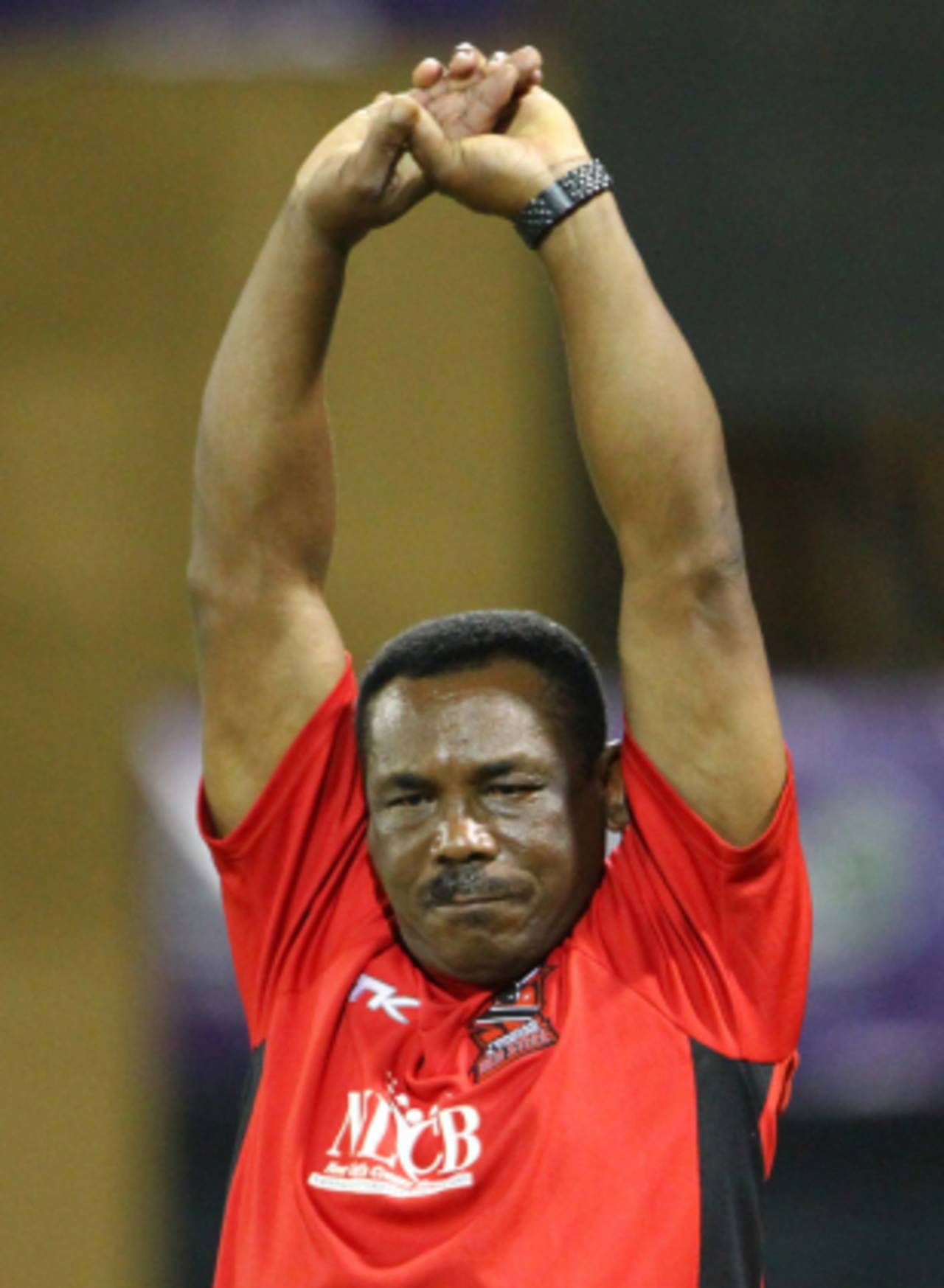'T20 breeds critical thinkers' - Greenidge
Gordon Greenidge, the West Indies batting legend, has thrown his support behind the Twenty20 version of the game
Renaldo Matadeen
07-Aug-2013

Gordon Greenidge: "T20 is at times a touchy subject, but you have to look at the potential that exists" • Getty Images
Gordon Greenidge, the former West Indies opener, has thrown his weight behind the Twenty20 version of the game. Greenidge believes that unfair criticism is sometimes harshly levelled at this format but reaffirmed his belief that more pros exist than cons.
"T20 is unpredictable," Greenidge said. "A lot of players, past and present, have differing views on the matter, and it's at times a touchy subject, but you have to look at the potential that exists.
"One tournament, such as the past Stanford T20 can make a player a star, as it did with so many regional players - [Kieron] Pollard, [Chris] Gayle, [Dwayne] Bravo and Sunil Narine. This format does contribute to the holistic grooming of the modern cricketer, particularly the young ones. Remember, this is just one format of the game. Look at how far the IPL has come and what it's done as a model for cricket."
Greenidge said that T20s, with balanced schedules by cricketing boards, should not be considered a threat to Tests and one-dayers in the contemporary game. He believes that the dynamic pressures involved in a T20 actually breeds critical thinkers and strategic tacticians, which would only benefit a player's development. "You're always rethinking strategies and you have to compete as hard as you can in this version of the game," he said. "Ball by ball, it constantly evolves as you've got only 20 overs to tinker with."
Currently coaching the Trinidad & Tobago Red Steel in the inaugural Caribbean Premier League, he continued to profess that T20s were an organic evolution of the game. "It's a dynamic team situation, when it comes to picking rosters, drafts and franchises. There's enormous planning on and off the field and when things can swing so quickly on the grass, you're always on the go. It's touch and go because one over can literally decide a game, which more so applies in T20s than elsewhere. Small scores can be defended and you can ill-afford to dwell on spilled milk when things go awry. Condensing cricket into 20 overs elicits new ways of thinking."
He referred to the financial stability to be achieved and added that lucrative opportunities could be bigger assets to young players than first envisioned. Greenidge said that high-pressure atmospheres, festive crowds and the fast pace of T20s would strengthen players' bravery and reduce their tendency to make mistakes. "Players in this format need to adapt quickly and are well adjusted, which translates better in the Test and ODI format. The transition to these longer formats would require shifting techniques but again, T20s would teach you patience and composure in such a small space of time per match. You hone and refine these tools further in the long formats."
A key component of T20s is the opportunity for young, inexperienced or regional players to rub shoulders in the dressing room with the seasoned veterans of the game, he pointed out. "Players can gain knowledge and insight from the likes of Pollard, Ricky Ponting and Muttiah Muralitharan. They may never have got the chance to get such pointers if it weren't for T20 cricket. It's a mix and over in the IPL, we see great exposure and coalitions of players from all over the world. The Caribbean's just building on that unity and cultivating the same cricketing harmony."
Greenidge pointed to factors such as willing sponsors, efficient marketing plans and advertising strategies that were now spreading the sport on a global scale.
"T20s can show the world how a cricketing star can be made overnight. This is a game of enormous self-confidence. The turnover's quicker and it encourages innovative stroke-playing, which isn't as rash as people hint at. I like that when it comes to losing here, there's no excuse. One year you may have a strong team and the next, not so much. T20 helps build exceptional crowd excitement and we know that filling stands is a big part of the game. T20's here to be a mainstay and I love seeing players consistently challenged in the matches, and uninhibited."
Renaldo Matadeen is a sportswriter and social media manager for ESPN Caribbean